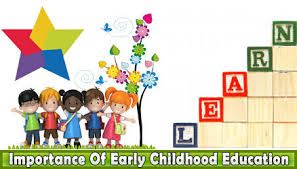"Parent talk" helps children learn
- October 20, 2014
- / Reggie Dogan
- / education

From the White House to the schoolhouse, the buzz is "bridging the word gap."
The early learning initiative stems from research that says by the age of 3, children born in poverty will have heard 30 million fewer words than children of more affluent families.
Policymakers and educators are paying attention. A cadre of prominent people are pushing the
importance of early language development. The notion is that the more words young children hear, the more they will learn and develop.
But a report last week in The New York Times, “Quality of Words, Not Quantity, Is Crucial to Language Skills, Study Finds,” says the number of words children hear is not nearly as important as the type of words parents use.
“The quality of the communication between children and their parents and caregivers, the researchers say, is of much greater importance than the number of words a child hears,” according to the article.
This new study was presented at a White House conference on “bridging the word gap.” It found that among 2-year-olds from low-income families, quality interaction involving words were a far better indicator of language skills at age 3 than any other factor, including the quantity of words a child heard.
The recent early learning study challenged previous studies that focused on the quantity of words as opposed to the quality of words.
Only a few days after the New York Times report, The Atlantic, in a piece titled, “Poor Kids Are Starving for Words,” continue to insist that poor kids will hear 30 million fewer words than their wealthy peers, and the less-affluent ones will suffer in school and in life as a result.
“According to a 2012 report by the Brookings Institution,” the Atlantic reported, “less than half of poor children show up to school prepared with the early math and reading skills, emotional and behavioral control, and physical well-being needed to be ready to learn, and that disadvantage persists into adulthood.”
The result of the studies led President Obama this year to challenge Americans to find ways to bridge the word gap. Many people and organizations have responded with numerous initiatives and programs in a concerted effort to focus on setting a good foundation for learning from birth to 4 years old.
There’s work to be done on the local level, too.
In Escambia County, 67 percent of children in VPK scored ready to start school, according to data provided by the Florida Department of Education’s Office of Early Learning. In Santa Rosa, 81 percent scored ready.
That means nearly a third of kids in Escambia aren’t ready for kindergarten, and research shows that those students rarely catch up to their peers.
Whether it is the quality of words or the quantity, early language gaps set children up to be at risk for other all too familiar gaps, such as the ones in high school graduation, arrest and incarceration, college education and career earnings.
Education is the foundation of social and economic development. The beginning years of a child’s life are critical for building the early foundation needed for success in school and later in life.
So, what can be done to prevent early problems and enhance early education?
Something as simple as “parent talk” — described as how often adults talk and engage in back and forth interactions with young children — is an important practice for building “brain power,” increasing vocabulary and reducing the earliest disparities among children. Talking, singing and interacting with babies costs nothing, and reading is a cost-effective.
Given the right information, every parent and teacher has the ability to communicate with children and provide a rich and stimulating early environment that will help equip them to succeed in school and reach their potential in life.
 CivicCon launches with a look at good growth in cities
CivicCon launches with a look at good growth in cities
 Building stronger brains one baby, one parent at a time
Building stronger brains one baby, one parent at a time
 SCI debuts commercial on Early Learning City
SCI debuts commercial on Early Learning City
 Entrecon: World class speakers and an opportunity to sharpen skills
Entrecon: World class speakers and an opportunity to sharpen skills
 PYP Quality of Life survey 2017
PYP Quality of Life survey 2017
 EntreCon Pensacola 2016: A look back
EntreCon Pensacola 2016: A look back
 Leadership tip: getting better employee takeaways
Leadership tip: getting better employee takeaways
 Leadership tip: be interested instead of interesting
Leadership tip: be interested instead of interesting
 Leadership tip: delivering difficult messages
Leadership tip: delivering difficult messages
 Brain Bags boost Arc, Early Childhood Court programs
Brain Bags boost Arc, Early Childhood Court programs